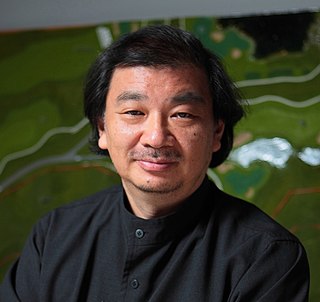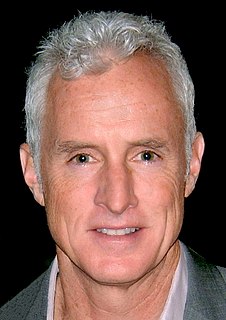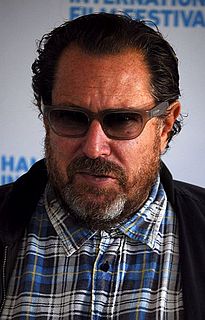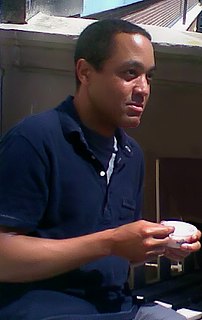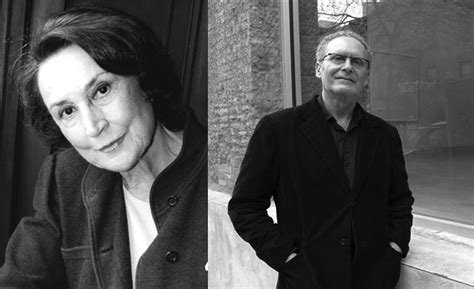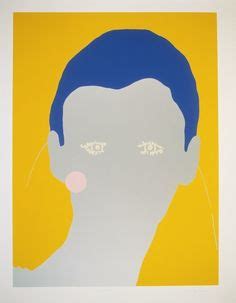A Quote by Takashi Murakami
Galleries in the West have probably been looking for exoticism. That's the reason my paintings initially sold well, I think. And then once they started selling, people said my works were very detailed. They may have represented something Japanese to them.
Related Quotes
I do voiceovers, but being on-camera and selling something? I wasn't really interested. And then I thought, well, wait a minute. Everybody's selling something. When you turn on the tube... And then if you go to Europe or Asia, everyone is selling something. All the guys that don't want to be seen selling something here are selling something there. So I thought what the hell?
As well as Japanese animation, technology has a huge influence on Japanese society, and also Japanese novels. It's because before, people tended to think that ideology or religion were the things that actually changed people, but it's been proven that that's not the case. Technology has been proven to be the thing that's actually changing people. So in that sense, it's become a theme in Japanese culture.
I often avoid using the terms 'figuration' and 'abstraction' because I've always tried to have it both ways. I want the experience of looking at one of my paintings to be similar to the process of making the painting - you go from the big picture to something very intense and detailed, and then back again.
Now there is a big turnover in the galleries. The top galleries are getting better all the time. A lot of galleries just struggle along, then a new one comes along. There are certainly a great number of galleries. I think this argues well for the art but there are, of course, a lot of "phonies" in all the arts.
It's very important to distinguish between what most people in the West think about knowledge, and what the Indian concept of knowledge is. In the West the knowledge is something that is tangible, is material, it is something that can be transferred easily, can be bought and sold; or as in India real knowledge is something that is a living being - is a Vidya.
When we started out, we were among the first. Beijing had no and Shanghai had very few large buildings. At that time, it was all about building, building, building - and then selling, selling, selling. We were working like a manufacturer. Soon, however, we realized that land was running out in Beijing and Shanghai. So we started keeping our buildings, and managing and renting them out. We became landowners. That was the second act.
When the AIDS epidemic first started there were people who said, "Well, if there weren't gays, then we wouldn't have this problem. It's got to be because of them - let it be them instead of us." But when you educate yourself about it, you can't help but realize that we're all affected by it. I think that things like that just become too daunting for people.
Barack Obama's said some very nice things and he says them well. But if you ask me, the reason that we're looking at somebody who is such an inexperienced senator, who has said some very pleasant but not especially sterling or innovative things, the reason that he's considered such a big deal is simply because he's black.
Art wasn't for selling. Actually, we once did have an offer on Double Negative. Things could be sold actually - everything could be for sale. But we had very few buyers. I think it was Michael Heizer who said that the point was to have a bigger canvas, and I've used that expression quite a bit. But I was thinking today that a canvas has boundaries; it has limit to it. And for earthwork, it was the very openness and feeling that there were no boundaries that made it so exciting.
What goes through one's head when Disney asked for 52 more shows? I remember seeing that in the supplemental features...When they first said "52" I literally laughed, I thought they were kidding. They said, "Well, how many do you think could do?" And I said, "Well, we've got 6 scripts in the works, so 6 obviously we could do. We did 13 last year, I think we could do 13 this year without a problem." I said, "If we really pushed it, I think we could do 18." And they said, "What about 52?" I started laughing but they were serious and eventually they did get the 52 episode order.
To be very fair, it was Ian Marsh and Martyn Ware who started The Human League. They brought Philip Oakey in to sing, primarily because Philip was very tall. So it started out as their vision. I don't think anyone ever thought it would be as big as it became. Music evolves and people were looking for something different. We came out at the right time and were just very lucky.

